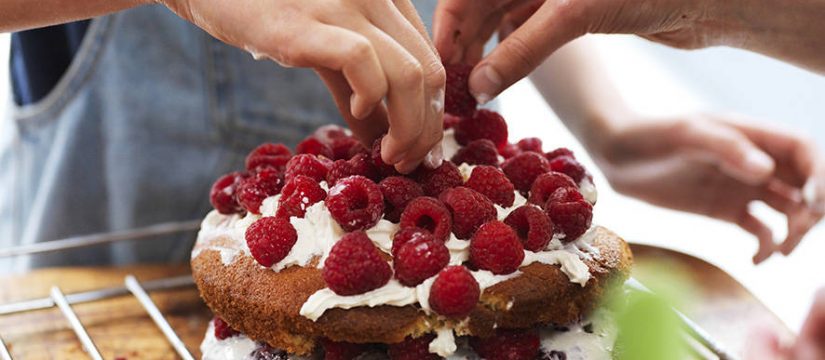
The Australian Government may have decided against introducing a ‘sugar tax,’ but the discussions this provoked have helped to raise awareness of how too much sugar can be hazardous to health, contributing to health problems such as obesity and tooth decay.1
Sugar occurs naturally in many foods, from fruit to dairy products, but it’s added to a whole lot more.1 Parents who are worried about their children having too much sugar in their diets should check food labels before they buy and try to discourage unhealthy snacking habits, to help lower their risk of oral health and general health problems.
How much sugar is too much?
Sugar isn’t always a bad thing. As a carbohydrate, it’s a source of energy that helps to power the body. But as the amount of sugar consumed increases, its negative health effects can quickly overtake the positive.1
Health authorities such as the World Health Organization (WHO) advise that sugar intake should not exceed more than 10% of a person’s daily energy intake. For someone with a healthy body mass index (BMI), this means about 50g or 12 teaspoons of sugar per day.2
Are we consuming too much sugar?
According to the most recent Australian Health Survey, the average person consumes 60 grams or 14 teaspoons of sugar per day – 10g over the WHO recommended limit. Most of this comes from added sugar.3
The age groups that consume the most sugar are children and teenagers, with adults over 50 being the least likely to exceed the recommended limit. Just over half (52%) of sugar is consumed in drinks, with the rest coming from food and sugary snacks.3
What are the worst snacks for teeth?
1. Pudding mix
If you like the convenience of instant pudding mix for family desserts or a guilty snack, you should check the nutritional label to see how much sugar they contain first – you might be surprised.
While sugar-free options are available, some brands contain over 60g sugar per 100g. Some can even be as high as 90g!4
2. Ice cream
Not all ice cream is created equal, but if you tend to be generous with the scoop, you should check the sugar content of your favourite flavours before you buy.
The sugariest ice creams are those that also include chocolate, cookies and other sweet treats. These can contain over 80g sugar per 340g serving, so you might think twice before ordering one for your child at fast food restaurants.
Even regular ice cream tubs from the supermarket can sometimes contain over 50g sugar per serving.4
3. Dried and canned fruit
Fresh fruit is recommended as part of a healthy lifestyle and it can also be good for your teeth, but that’s not the case for dried fruits. These can stick to the teeth, increasing the risk of tooth decay, as well as being high in sugar.
One cup of dried raisins, currants or dates can contain over 90g sugar. Dried apricots, mangoes or peaches can contain over 60g and dried apples or bananas over 40g.4
Canned fruit and berries in syrup and other sweetened varieties also have lots of added sugar, often 40g–60g per cup.
4. Cakes
It shouldn’t come as a surprise that many cakes are loaded with sugar. While there are lots of delicious low-sugar and sugar-free cake recipes out there, cakes with icing can include 50g–60g sugar in every slice.
5. Lollies
Some popular brands of chews and lollies contain over 30g–40g sugar.[4] The worst lollies for your teeth are sticky varieties, which can be harder to remove from teeth surfaces and can attract bacteria, increasing the risk of decay.
Hard lollies can also be hazardous. Not only for the risk of chipping a tooth, but also because they tend to stay in the mouth for longer, prolonging contact with your teeth.
6. Chocolate
Milk chocolate and white chocolate tend to be high in sugar, especially confectionery bars and buttons which often contain between 30g–50g sugar per serving.
The good news is that chocolate is fairly easy to rinse off your teeth if you drink water right away. Dark chocolate contains less sugar, which is easier on your teeth.6
7. Yoghurt
Don’t be fooled by low-fat yoghurts. They may be low in fat and fortified with vitamins, but many are still high in sugar, some containing 30g–40g sugar per tub.
This doesn’t apply to unsweetened natural yoghurt, which is recommended by dentists as a tooth-friendly snack.5
8. Cereal bars
You might think that cereal, granola and muesli bars are healthy alternatives to other sweet snacks, but thanks to all that dried fruit, these often contain up to 40% sugar.
You can look after your teeth by looking for low-sugar varieties with less than 15g.
Source: https://bit.ly/3CF2xpC
